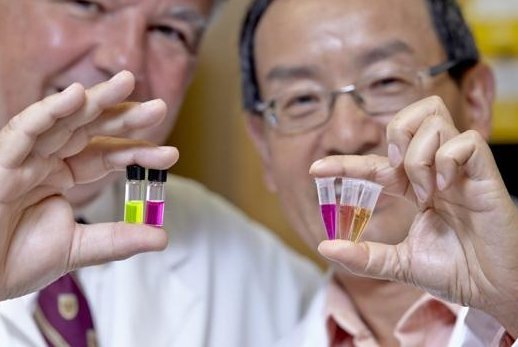HAMILTON, Ontario, Sept. 4 (UPI) -- Scientists at Canada's McMaster University said their plan for an affordable and non-invasive test for colorectal cancer involves making a patient's stool glow.
Dr. Yingfu Li, a biochemist, and gastroenterologist Dr. Bruno Salena, both at the Hamilton, Ontario school, said an Innovation Grant grant from the Canadian Cancer Society is helping them to develop fluorescent DNA enzymes, or DNAzymes, that would glow in the fecal matter of patients with colorectal cancer.















